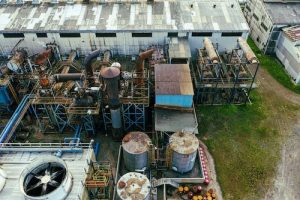The vast oil and gas reserves of Canada have fueled its economy for decades, and the demand for skilled professionals like petroleum engineers remains strong. If you’re a talented engineer seeking a new challenge and a promising career path, migrating to Canada could be your dream move.
Let’s explores the role of a petroleum engineer, the demand for this profession in Canada, the benefits it offers, eligibility requirements, visa options, and tips for a successful job application process.
What Does a Petroleum Engineer Do?

Petroleum engineers act as the bridge between the science of extracting oil and gas from underground reservoirs and the practical application of that knowledge. Their diverse duties include:
- Reservoir engineering: Analyzing geological data to assess oil and gas reserves, optimize production methods, and ensure efficient resource utilization.
- Drilling engineering: Designing and overseeing drilling operations, ensuring safety, wellbore integrity, and cost-effectiveness.
- Production engineering: Managing production processes, monitoring equipment performance, and implementing strategies to maximize yield while minimizing environmental impact.
- Facilities engineering: Designing and maintaining oil and gas production facilities, including pipelines, processing plants, and storage tanks.
This multifaceted role requires a strong foundation in engineering principles, coupled with specialized knowledge of geology, reservoir mechanics, and petroleum production technologies.
Is There Demand for Petroleum Engineers in Canada?
Absolutely! Canada’s oil and gas sector is a significant contributor to its economy, and the demand for qualified petroleum engineers is expected to remain high in the coming years. This is due to factors like:
- Resource abundance: Canada holds vast oil and gas reserves, particularly in provinces like Alberta, Saskatchewan, and Newfoundland & Labrador.
- Technological advancements: New technologies are constantly being developed to extract resources from unconventional reservoirs, creating new job opportunities.
- Aging workforce: A significant portion of the current petroleum engineering workforce is nearing retirement, necessitating replacements with fresh talent.
The Canadian government has also implemented policies to attract and retain skilled professionals, making it an attractive destination for ambitious engineers.
Benefits of Getting a Petroleum Engineer Job in Canada
Aside job security and career growth, working as a petroleum engineer in Canada offers several advantages:
- Attractive salaries and benefits: Petroleum engineers command some of the highest salaries in Canada, with average annual salaries exceeding $100,000.
- Exposure to cutting-edge technologies and innovative practices.
- Contribution to sustainable energy development and environmental stewardship initiatives.
- High quality of life: Canada consistently ranks among the best countries globally for quality of life, offering a clean environment, a strong social safety net, and a multicultural society.
- Work-life balance and a high standard of living in Canadian cities.
- Access to world-class education and training resources for skill enhancement.
- Path to Permanent Residency: Working as a petroleum engineer can open doors to permanent residency in Canada, allowing you to build a long-term future in this welcoming nation.
What are Eligibility and Requirements to Become a Petroleum Engineer in Canada?
To become a petroleum engineer in Canada, individuals typically need:
- A bachelor’s degree in petroleum engineering or a related field from a recognized institution.
- Professional engineering licensure or registration with the relevant provincial or territorial regulatory body.
- Relevant work experience in the oil and gas industry, preferably in engineering roles.
- Proficiency in technical skills such as reservoir simulation, drilling engineering, and production optimization.
- Strong analytical, problem-solving, and communication skills.
- Familiarity with industry regulations, safety standards, and environmental practices.
Visa Options for Petroleum Engineers in Canada
Several visa options are available for foreign petroleum engineers seeking to work in Canada:
- Temporary Work Permit: This allows you to work for a specific employer for a set period. Your employer may need to obtain a Labor Market Impact Assessment (LMIA) to demonstrate they couldn’t find a qualified Canadian candidate.
- International Mobility Program (IMP): This offers various streams tailored to specialized occupations like petroleum engineering.
- Provincial Nominee Programs (PNPs): Several provinces have PNPs that offer expedited immigration pathways for in-demand professions like petroleum engineering.
How to Apply for a Petroleum Engineer Job in Canada
Here’s a roadmap to securing your dream petroleum engineering job in Canada:
- Research Canadian oil and gas companies: Identify potential employers by researching companies operating in your area of expertise.
- Update your resume and cover letter: Tailor your resume and cover letter to highlight your skills and experience relevant to the Canadian oil and gas sector.
- Network with professionals: Connect with Canadian petroleum engineers through online forums, professional associations, or industry events.
- Apply for relevant jobs: Utilize job boards like Indeed, Glassdoor, and Workopolis, and directly apply to company websites.
- Prepare for interviews: Research the company and potential interview questions specific to the Canadian oil and gas industry.